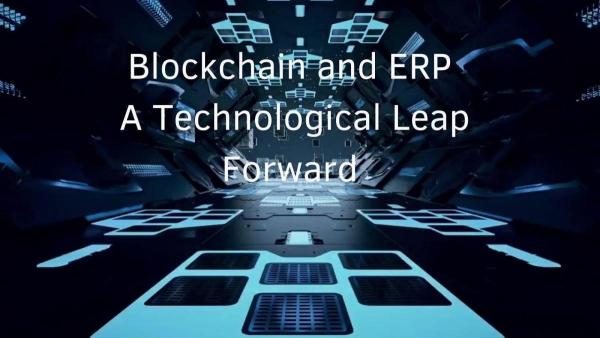
In this digital world, businesses continuously seek advancements that enhance efficiency, security, and transparency. Integrating blockchain technology with Enterprise Resource Planning (ERP) systems is revolutionizing how organizations manage their operations. Ravi Sankar Korapatian esteemed researcher in enterprise technology, explores this groundbreaking convergence in his recent study. His insights shed light on how blockchain enhances security, automation, and efficiency within ERP frameworks.
Reinventing Security with Immutability
One of the standout innovations of blockchain-ERP integration is the bolstered security through immutable ledgers. Traditional ERP systems often struggle with data breaches and unauthorized access. However, blockchain’s cryptographic framework ensures data integrity by making records tamper-proof. Organizations leveraging this technology report a significant reduction in fraudulent activities and security incidents. By implementing decentralized consensus mechanisms, businesses achieve unprecedented transparency and auditability, reducing compliance risks and reinforcing data protection.
Smart Contracts: Automating Business Logic
Blockchain’s smart contracts streamline business operations by automating contractual agreements. These self-executing contracts eliminate intermediaries and execute business rules with near-perfect accuracy. Organizations adopting this technology have reported faster transaction processing, reduced administrative overhead, and fewer disputes. By embedding these digital agreements into ERP systems, enterprises can optimize contract validation, ensuring real-time execution of financial transactions, supply chain movements, and vendor agreements.
Enhanced Transparency in Supply Chains
Supply chain management has long suffered from inefficiencies and lack of visibility. Integrating blockchain with ERP systems addresses these issues by enabling real-time tracking and authentication of goods across multiple checkpoints. Businesses utilizing this innovation have witnessed an increase in end-to-end transparency, reducing counterfeit risks and improving supplier accountability. By implementing distributed ledgers, companies can monitor every transaction, ensuring that products adhere to quality and regulatory standards throughout the supply chain.
Real-Time Data Access for Smarter Decision-Making
Traditional ERP systems frequently encounter data silos and delays, hindering efficient information retrieval. Blockchain integration revolutionizes this process by providing real-time access to crucial business data, enhancing decision-making agility. Organizations can swiftly adapt to market fluctuations and operational challenges. Blockchain’s decentralized structure ensures data consistency across departments, reducing redundancies, improving collaboration, and optimizing resource allocation for enhanced operational efficiency.
Cost Optimization Through Decentralization
Integrating blockchain with ERP enhances financial efficiency by eliminating intermediaries and automating verification, reducing transaction costs. Businesses report significant savings as automated reconciliation improves financial reporting accuracy. Lower administrative overhead enables resource reallocation to innovation and growth, strengthening financial sustainability and optimizing operational expenses for long-term business success.
Overcoming Implementation Challenges
While blockchain-ERP integration offers remarkable benefits, it comes with its own set of challenges. Businesses must invest in the right technological infrastructure and ensure seamless integration with existing systems. The learning curve associated with blockchain technology necessitates specialized staff training. Additionally, scalability concerns and regulatory compliance need careful consideration. However, organizations that effectively navigate these challenges stand to gain a competitive edge in the evolving digital landscape.
The Future of Blockchain-ERP Synergy
The trajectory of blockchain-ERP integration points towards an era of more competent, resilient enterprise systems. Industry experts predict widespread adoption across multiple sectors, with advancements in cross-chain interoperability and AI-powered analytics further enhancing its capabilities. As businesses seek ways to optimize operations, the convergence of blockchain and ERP will play a pivotal role in shaping next-generation enterprise solutions.
In conclusion, Ravi Sankar Korapati highlights the transformative potential of integrating blockchain technology with ERP systems. This innovation is more than just a technological upgrade—it represents a fundamental shift in how enterprises manage their data, security, and operational efficiency. By embracing blockchain, organizations can unlock new levels of automation, transparency, and cost optimization. As industries continue to evolve, the synergy between blockchain and ERP will become a defining factor in shaping the future of digital enterprises